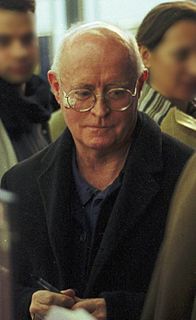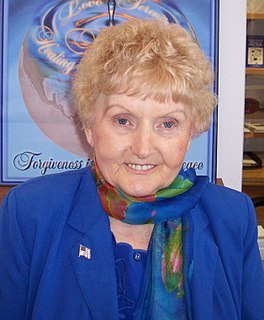A Quote by Edward Bond
What Shakespeare and the Greeks were able to do was radically question what it meant to be a human being.
Quote Topics
Related Quotes
What is remarkable about the Greeks - even pre-philosophically - is that despite the salience of religious rituals in their lives, when it came to the question of what it is that makes an individual human life worth living they didn't look to the immortals but rather approached the question in mortal terms. Their approaching the question of human mattering in human terms is the singularity that creates the conditions for philosophy in ancient Greece, most especially as these conditions were realized in the city-state of Athens.
I believe in recognizing every human being as a human being--neither white, black, brown, or red; and when you are dealing with humanity as a family there's no question of integration or intermarriage. It's just one human being marrying another human being or one human being living around and with another human being.
As for climate change, it's by now widely accepted by the scientific community that we have entered a new geological era, the Anthropocene, in which the Earth's climate is being radically modified by human action, creating a very different planet, one that may not be able to sustain organized human life in anything like a form we would want to tolerate.
We ran up to them and they gave us hugs, cookies and chocolate. Being so alone, a hug meant more than anybody could imagine because that replaced the human warmth that we were starving for. We were not only starved for food, but we were starved for human kindness. And the Soviet Army did provide some of that.
People knew there were two ways of coming at truth. One was science, or what the Greeks called Logos, reason, logic. And that was essential that the discourse of science or logic related directed to the external world. The other was mythos, what the Greeks called myth, which didn't mean a fantasy story, but it was a narrative associated with ritual and ethical practice but it helped us to address problems for which there were no easy answers, like mortality, cruelty, the sorrow that overtakes us all that's part of the human condition. And these two were not in opposition, we needed both.
...the program of scientific experimentation that leads you to conclude that animals are imbeciles is profoundly anthropocentric. It values being able to find your way out of a sterile maze, ignoring the fact that if the researcher who designed the maze were to be parachuted into the jungles of Borneo, he or she would be dead of starvation in a week...If I as a human being were told that the standards by which animals are being measured in these experiments are human standards, I would be insulted.






































